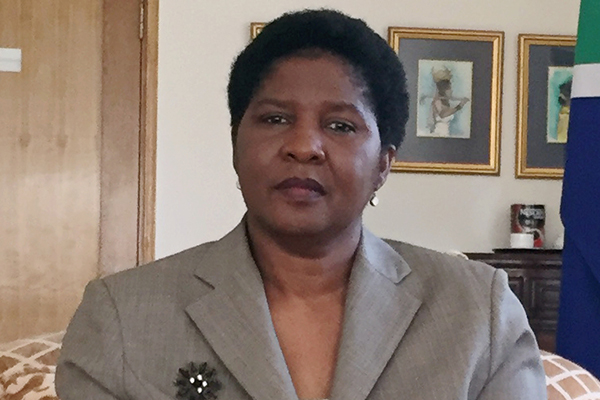China has key role in leadership

Dolana Msimang South African Ambassador to China. [Photo/China Daily]
South Africa expects China to play a bigger role in enhancing the voice and representation rights of African countries in international organizations, to promote a more just and fair global order, South African Ambassador to China, Dolana Msimang said.
It is also expected that global leaders attending the summit will discuss and agree on a new path to reinvigorate global economic growth, and measures to make global economic and financial governance more efficient, she said.
The summit's theme is "building an innovative, reinitialized, interconnected and inclusive world economy".
"China came up with a brilliant theme that addresses the all-round challenges of today," Msimang said, noting that inclusiveness is especially important.
The number of developing nations invited to this year's G20 summit is larger than for any previous meetings.
Developed and developing countries will sit down as equal partners and explore how to realize long-term and steady world economic growth, which showcases that the summit is much more representative and inclusive, Foreign Ministry spokesman Lu Kang said earlier.
The ambassador believes that China has a lot to share with her country and other developing nations because "it has the experience of moving from a poor country to the world's second-largest economy".
While some are pessimistic on the Chinese economy as it slows down, Msimang thinks it remains robust and is one of the (main) engines of global growth.
"Some of the slowdown is deliberate and it is part of the development of the Chinese economy," she said, adding that South Africa benefits from China's transfer of industries to the African continent.
But her country will also take care of the environment since it has learnt from the lessons of China, she added.
South Africa is a latecomer of the BRICS group of nations, but Msimang thinks BRICS is still an important platform for emerging economies despite the economic slowdown in some of its member states.
"It is a highly important format to align approaches towards key international problems within its framework," she said, also noting that the inter-BRICS trade has increased tremendously.
Moreover, the BRICS New Development Bank is also an alternative to other institutions. South Africa has asked the NDB for $250 million of funding to connect new power plants to the national grid, according to the ambassador.
During the Johannesburg Summit for the Forum on China-Africa Cooperation last year, President Xi Jinping put forward 10 major plans to boost cooperation with Africa in the next three years in areas such as industrialization, agricultural modernization, infrastructure and finance.
Xi also pledged that China would provide a $60 billion investment package.
According to Msimang, the plans are highly compatible with Africa's efforts to remove the three bottlenecks hindering its development: the lack of infrastructure, inadequate professional and skilled personnel, and lack of financial inputs.
"I think that unlike some other powers China does not seek to use development aid to influence the domestic politics of African countries or dictate policies," she said. "Instead, it truly hopes to help Africa achieve better development while avoiding meddling with the internal affairs of African countries through conditional aid."

 Print
Print Mail
Mail
 20 Cultural Symbols
20 Cultural Symbols Why Zhejiang
Why Zhejiang Experiencing high-tech products at WIC
Experiencing high-tech products at WIC Zhejiang Release
Zhejiang Release Zhejiang News
Zhejiang News